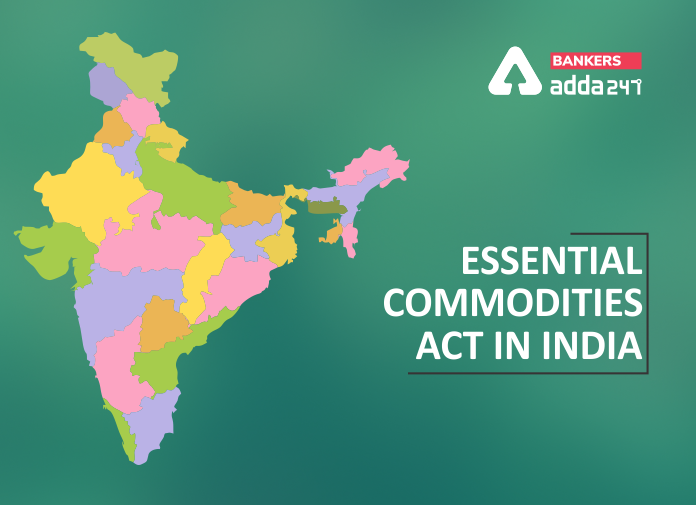Table of Contents
The Essential Commodities Act of 1955, prohibits shopkeepers from storing and indulging in black marketing of essential commodities. In more recent times, with the spread of the COVID-19 pandemic, the Central Government has released an official notification under the Essential Commodities Act stating that masks and hand sanitizers will now be considered as Essential Commodities up to June 30th, 2020. With this notification, the hoarding as well as black marketing of these essential commodities will now be prohibited.
This is a good thing, especially considering every country around the world has been taking and implementing necessary measures to tackle the pandemic. And in this fight against the virus, masks and hand sanitizers have become quite essential. However, reports have suggested that both masks as well as hand sanitizers are either unavailable in shops and online selling platforms, or they are being sold at extremely higher prices than their MRP. It is due to this that the Central Government has declared 2 PLY, 3 PLY surgical masks, N95 masks as well as hand sanitizers as essential items till June 30th, 2020.
Practice With,
WHAT IS THE ESSENTIAL COMMODITIES ACT?
The Essential Commodities Act of 1955 is a law by the Central Government, which prohibits the hoarding and black marketing of essential commodities. The Act is applicable throughout the country. The essential commodities included in the Act are pulses, edible oils, drugs, fertilisers and petroleum as well as petroleum products, among other things.
Furthermore, under the Act, if the Central Government finds that the price of a particular commodity is on the rise due to a shortage in its supply, it can order the State Governments and Union Territories to fix the commodity’s stock holding limit for a fixed period of time. During this time, whoever is found selling this commodity is prevented from stocking more than a set quantity od the same, in order to avoid black marketing and a rise in prices.
The Food and Civil Supply authorities are the ones who execute the provisions of the Essential Commodities Act.
AIMS AND OBJECTIVES OF THE ESSENTIAL COMMODITIES ACT:
Following are some of the main objectives and aims of the Essential Commodities Act of 1955:
- Maintaining the uninterrupted supply of the listed essential commodities throughout the country.
- Keeping the price of the essential commodities stable for people. The Central Government, along with the Ministry of Consumer Affairs, Food & Public Distribution also tries to fix the MRP for all essential goods. In case of 2 PLY surgical masks, the MRP has been fixed at INR 16.
- Preventing all unnecessary storage of the essential items.
- Stopping black marketing of the listed essential goods.
Click Here to Register for Bank Exams 2020 Preparation Material
Also Read,
| List of Presidents | List of Prime Ministers | Largest State of India | Governers of RBI |
| What is PMJDY ? | List of Cabinet Ministers | National Security Act | Chief Election Commissioner of India |
WHAT ARE THE ESSENTIAL COMMODITIES MENTIONED IN THE ACT?
It is important to note that the list of essential commodities is vulnerable to changes according to the economic and weather conditions, along with any natural calamities in the country, along with other situations. The different states can also change it according to their needs and requirements. Some of the main items included in the list of essential commodities according to the Act are:
- Petroleum and its products, including petrol, diesel, kerosene, solvent, naphtha, etc.
- Food items, edible oils and seeds
- Pulses
- Vegetables, paddy, sugarcane and its products like sugar and khandasari, etc.
- Jute and textiles
- Fertilizers
- Hand sanitizer
- Masks (2 PLY, 3 PLY, N95)
- Cattle fodder, including oilcakes and other concentrates
- Coal (including coke and other derivatives of it)
- Automobiles, automobile accessories and component parts
- Cotton and woollen textiles
- Drugs
- Iron and steel
- Paper
- Raw cotton and raw jute
PUNISHMENT UNDER THE ESSENTIAL COMMODITIES ACT:
In case any one is found offending the act, the States Governments or Union Territories are liable to take action against the offender. The punishment will be under the Essential Commodities Act, 1955 and the Prevention of Black-marketing and Maintenance of Supplies of Essential Commodities Act, 1980 (PBMMSEC Act, 1980).
An offender under the Essential Commodities Act,1955 may be punished with imprisonment up to 7 years or fine or both and under the PBMMSEC Act, they can be detained for a maximum of 6 months.



 Daily Current Affairs 23rd April 2025, I...
Daily Current Affairs 23rd April 2025, I...
 Daily Current Affairs 22nd April 2025, I...
Daily Current Affairs 22nd April 2025, I...
 Para Jumble Questions for SBI PO Exam
Para Jumble Questions for SBI PO Exam



